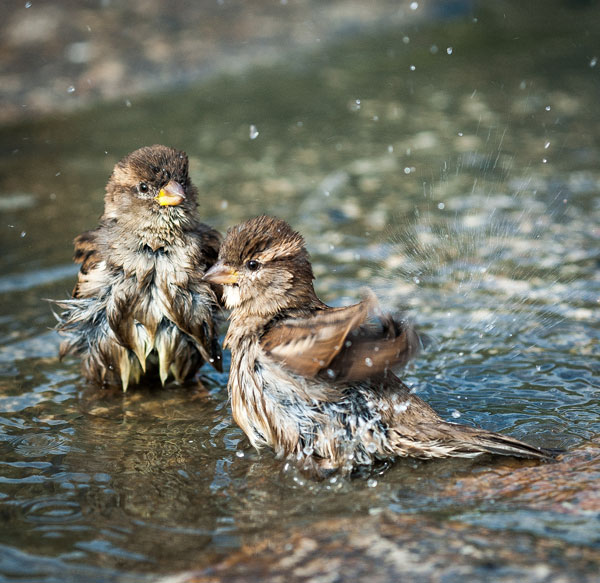Project Brighton: How to help wildlife during the heatwave – from Charlotte Owen, Conservation Officer at the Sussex Wildlife Trust

After such a long period of drought and relentlessly high temperatures, conditions are tough for wildlife. Water is in short supply, the ground is baked solid and refuge from the sun’s rays can be hard to find – here’s how you can help.
Water
• Provide a shallow dish of water for thirsty birds, mammals and even insects. Placing a small stone in the centre will help any bees and beetles that accidentally end up in the drink to make their way out again safely
• Birds will also use the water to bathe, which is essential to keep their feathers in good condition
• Keep dishes clean and regularly topped up
• In the long-term, a garden pond is an extremely valuable wildlife habitat and you can create a miniature version using an old sink, bucket or washing up bowl
Food
• Keep bird feeders topped up and scatter some food on the floor for thrushes and other ground-feeders
• Soaked raisins* and halved apples will provide welcome moisture, and live or soaked mealworms will be particularly popular with robins and tits
• Safe table scraps include unsalted bacon rind, bread, mild grated cheese and pastry
• Hedgehogs, badgers and foxes will enjoy tinned cat or dog food, which provides essential moisture as well as nutrition. Mealworms should be fed to hedgehogs in moderation and never put out bread and milk as this will cause an upset stomach
* Raisins pose a potential threat to dogs and cats, so please don’t put them out where pets may access them
Placing a small stone in the centre will help any bees and beetles that accidentally end up in the drink
Refuge
• Amphibians are particularly vulnerable to dehydration as they lose moisture so rapidly through their skin. Logs, stone slabs, rockeries and tall grass can provide vital refuge for frogs, toads and newts seeking shelter from the sun
• Ponds that are dangerously low can be topped up. If your rain barrel is empty, it’s ok to use tap water – but it’s best to add little and often
• Wilder areas in the garden will provide shelter for a wide range of wildlife, so resist the temptation to be too tidy
• Make sure hedgehogs and other small creatures can access your garden by cutting a small hole in the fence
Specialist care
If you find any wild creature in distress, contact your local wildlife rescue organisation as soon as possible: https://sussexwildlifetrust.org.uk/injuredwildlife





















